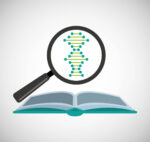Genetic Sequencing Urged for Any Child With Developmental Delays

Any child who experiences developmental delay or intellectual disability by age 18 should undergo genetic sequencing as a first- or second-line diagnostic test, according to new guidelines published by the American College of Medical Genetics and Genomics (ACMG).
Such genetic sequencing also should be done for infants with congenital anomalies that appear within the first year of life, the ACMG is urging.
These new recommendations were met with praise by the Cure Sanfilippo Foundation, which stated that earlier genetic testing could help children with rare diseases like Sanfilippo syndrome to be properly diagnosed.
“In this age of diagnostic testing, a deeper evaluation of medical and genetic causes should be investigated at the first signs of developmental delay,” Cara O’Neill, MD, the foundation’s chief science officer, said in a press release, adding that such an approach “benefits all patients with rare diseases.”
“Many clinicians adopt a ‘wait-and-see’ approach to symptoms, prolonging diagnosis,” O’Neill said. “Clinicians need to change this mentality and pursue a full medical workup versus this outdated approach.”
Indeed, the majority of children with Sanfilippo experience long wait times — an average of seven years, according to the foundation — as well as multiple misdiagnoses before finally receiving a correct diagnosis.
The guidelines, titled “Exome and genome sequencing for pediatric patients with congenital anomalies or intellectual disability: an evidence-based clinical guideline of the American College of Medical Genetics and Genomics (ACMG),” were published in Genetics in Medicine.
Exome and genome sequencing are both technologies used to identify the sequence of a person’s genetic code. Genome sequencing looks at the whole genetic code, whereas exome sequencing just looks at the part that codes for proteins. Since such technologies determine the sequence of a person’s genetic code, they can be used to identify rare disease-causing mutations and, as such, diagnose diseases.
However, whether and how to use these new technologies in routine medical practice remains a subject of debate.
To construct the new guidelines, a team of researchers — including the ACMG board of directors — conducted an evaluation of published data on the use of genetic sequencing to identify rare diseases in children with developmental delay or intellectual disability, or infants with congenital anomalies.
Broadly, the results showed that this kind of testing can be highly beneficial: it can lead to an accurate diagnosis, which in turn can inform the best appropriate treatment and care. Such testing also can help to inform reproductive choices, and may even reduce costs by avoiding the need for more extensive assessments.
“Identification of an underlying diagnosis for CA/DD/ID [congenital anomalies, developmental delay, and/or intellectual disability] can lead to changes in management that will influence mortality, morbidity, and reduce the burden on patients and families searching for answers,” the team wrote.
The researchers also found little evidence that this kind of testing could be harmful. There were a few rare instances of genetic testing revealing that someone’s biological father was not who they’d thought — situations that require ethical considerations — and some concerns raised about patients’ potential reduction or loss of privacy. One potential harm may be insurance discrimination, the study reported.
“The growing body of literature provides justification for a strong recommendation based on the balance of effects favoring the intervention [exome or genome sequencing] and desirable effects being potentially large with limited harms identified,” the team concluded.
Given the findings, the ACMG recommended genetic sequencing as either a first- or second-line test for children, based on clinical judgment and decisions made in cooperation with each patient’s family.







